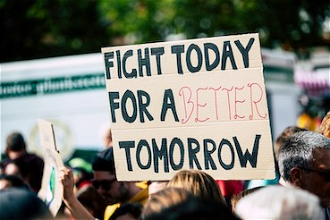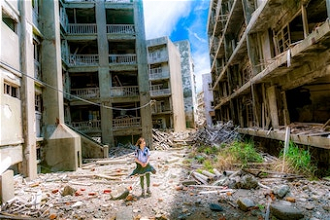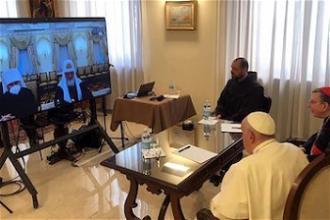Ian Linden: Just War - is there such a thing?

Photo by Markus Spiske on Unsplash
"Taking preparatory steps to enable placing our societies on a war footing when needed are now not merely desirable but essential". That was General Sir Patrick Sanders, Chief of General Staff since 2022, speaking at a military conference just a month ago. The British government hastened to deny any intention of introducing conscription. A week before, and only a little less disturbing, the Secretary of State for Defense, Grant Shapps, declared that we had moved "from a post-war world to a pre-war world".
Societies preparing to put themselves on a war footing need to consider carefully what justifies both going to war (jus ad bellum) and the conduct of war (jus in bello) to limit war's barbarity, questions addressed for over five millennia, a quest first found in the ancient Sanskrit Mahabharata.
General Sanders was educated at the Benedictine school attached to Worth Abbey and is certainly familiar with the evolving Catholic just war tradition dating from St Augustine of Hippo in the 4th century. Here is the relevant text from the 1992 Catholic catechism: "The strict conditions for legitimate defense by military force (sic) require rigorous consideration. The gravity of such a decision makes it subject to rigorous conditions of moral legitimacy. At one and the same time: the damage inflicted by the aggressor on the nation or community of nations must be lasting, grave, and certain; all other means of putting an end to it must have been shown to be impractical or ineffective; there must be serious prospects of success; the use of arms must not produce evils and disorders graver than the evil to be eliminated. The power of modern means of destruction weighs very heavily in evaluating this condition". Heavily enough for Pope Francis to abandon the possibility of a just war in favour of Christian non-violence.
Within the just war tradition self-defense, restoration of justice and resistance to an invader, are considered legitimate reasons to fight. In addition, war must be declared by a legitimate ruler. And during war, proportionality - the relative degree of harm caused by military intervention particularly, but not exclusively, to innocent civilians being a primary consideration. Correspondingly, without reasonable chance of success, a futile defense, while honourable ,would not traditionally be considered just.
Today the principles of jus in bello are expressed within the tradition of humanitarian law and in terms derived from the concept of human rights. The crime of aggression, war crimes, crimes against humanity, the fate of innocent civilian casualties (the notorious 'collateral damage' which has immediate consequences for military targeting) all have their origins in the idea of inviolable human rights.
Modern warfare has not precluded consideration of just war criteria. If anything, the wars in the 20th century stimulated their development, if not their application. After the Hamas attack of 7 October, the Israeli government appealed - plausibly - to its right to self-defense. (Mention of the longstanding conflictive quest for land, peace and freedom, out of which the atrocities committed against Israeli communities and the Nova music festival, became anathema.) Ukrainians sheltering from drones launched by the Russian invader, or investigating the murder of civilians in Bucha, or watching the destruction of Mariupol with all its people, didn't feel any need to debate just cause.
The legal category of war crimes, endorsed by the Catholic Church, has become highly relevant to the war in Ukraine and to the asymmetric Hamas-Israel war. For example, the starvation and killing of thousands of children in Gaza, the capture and killing of all ages in the Be'eri kibbutz and the youth at the Nova music festival, with civilians over 2/3rds of the total 1,169 killed, brings the wider question of proportionality into sharp focus and raises the question of war crimes. And popular perception of just cause (jus ad bellum) instinctively changes in the face of destruction of whole areas of human occupation and intolerably high numbers of civilian casualties (jus in bello).
To read on see: www.ianlinden.com/latest-blogs/just-war-is-there-such-a-thing
Professor Ian Linden is Visiting Professor at St Mary's University, Strawberry Hill, London. A past director of the Catholic Institute for International Relations, he was awarded a CMG for his work for human rights in 2000. He has also been an adviser on Europe and Justice and Peace issues to the Department of International Affairs of the Catholic Bishops Conference of England and Wales. Ian chairs a new charity for After-school schooling in Beirut for Syrian refugees and Lebanese kids in danger of dropping out partnering with CARITAS Lebanon and work on board of Las Casas Institute in Oxford with Richard Finn OP. His latest book was Global Catholicism published by Hurst in 2009.





















